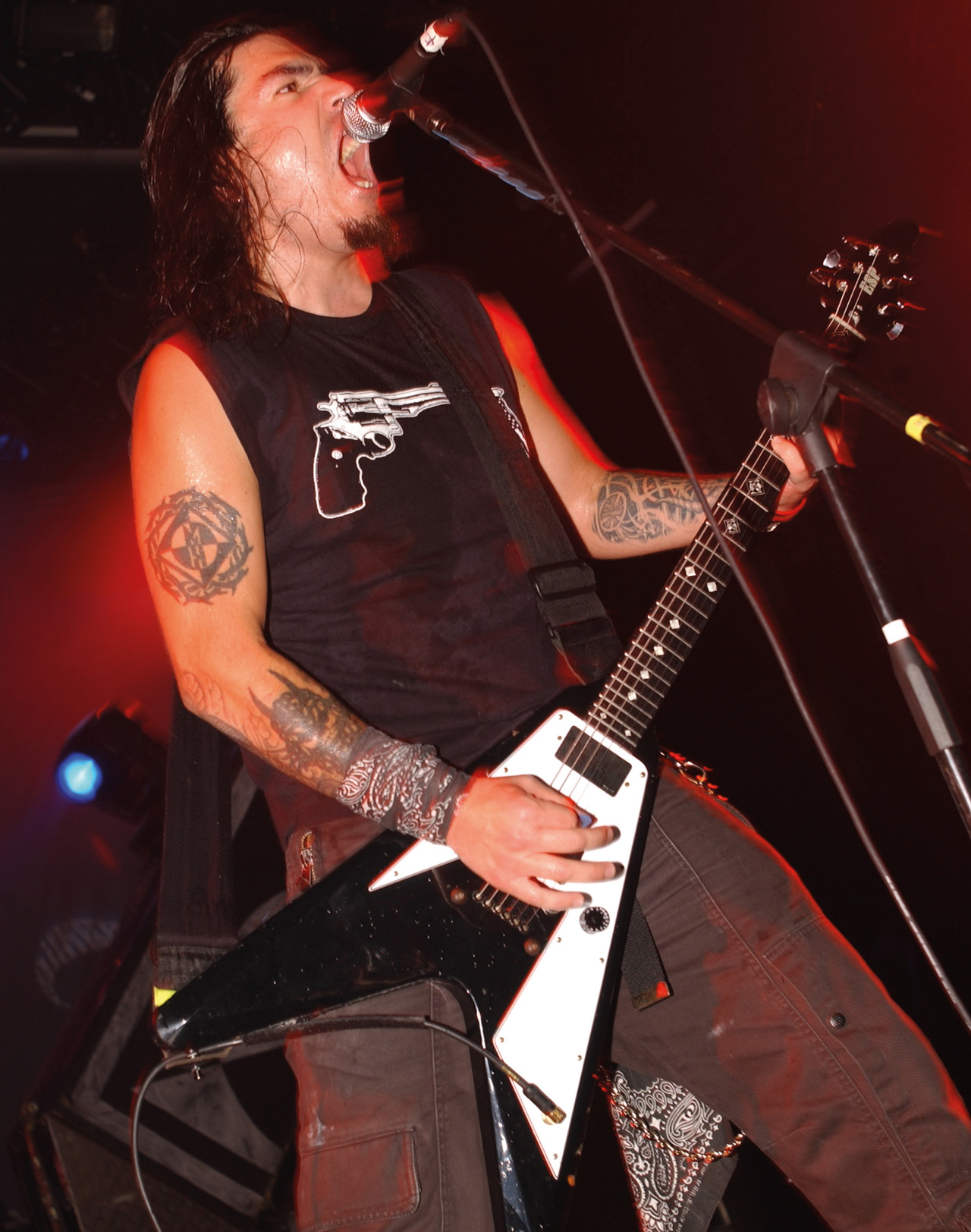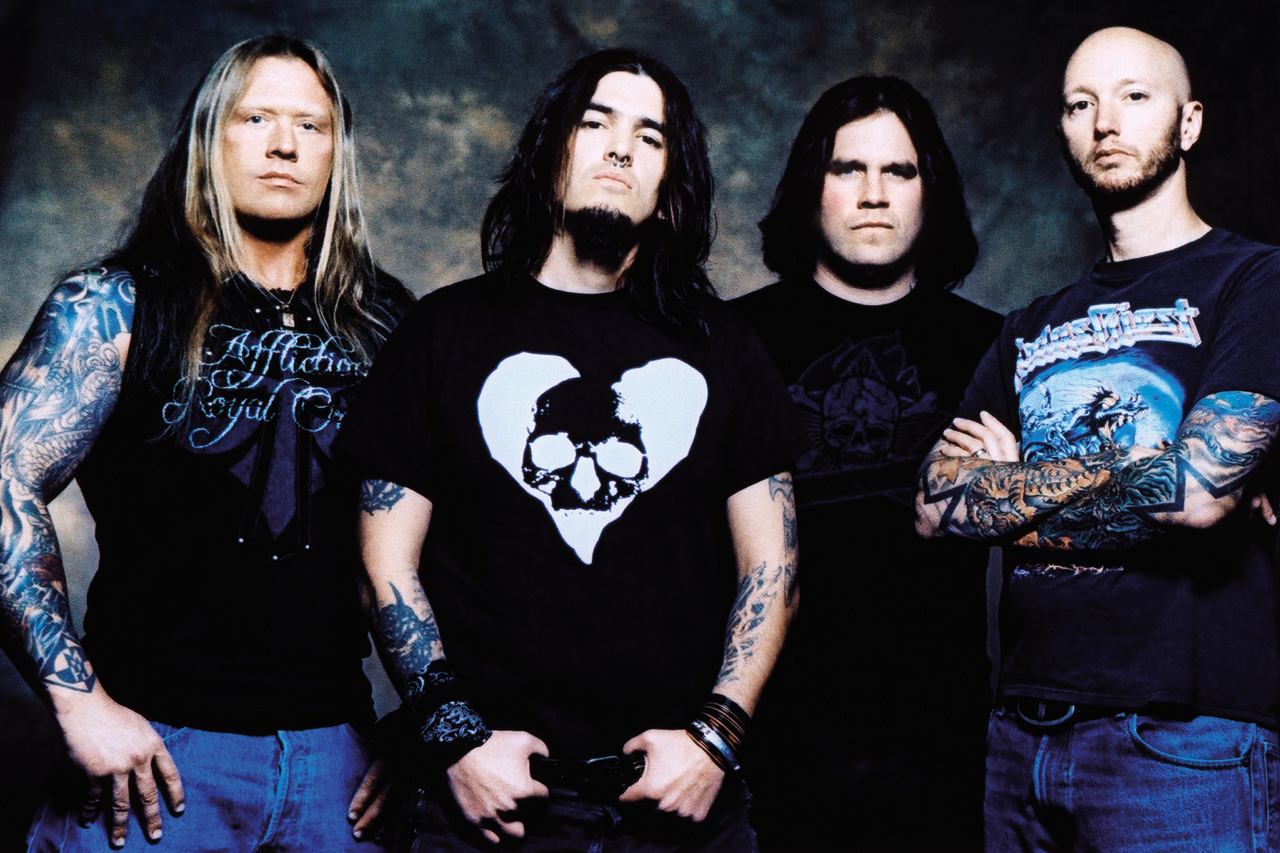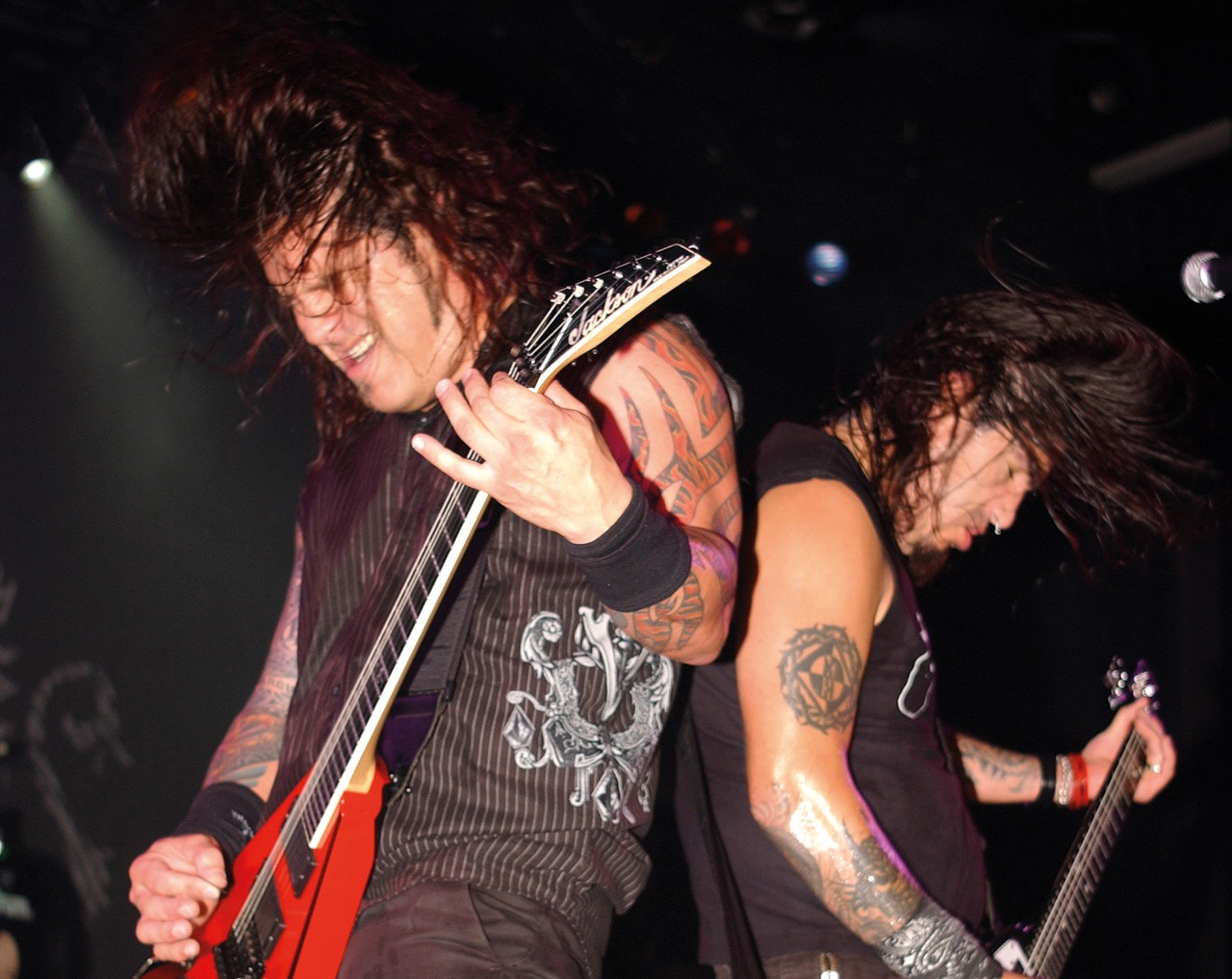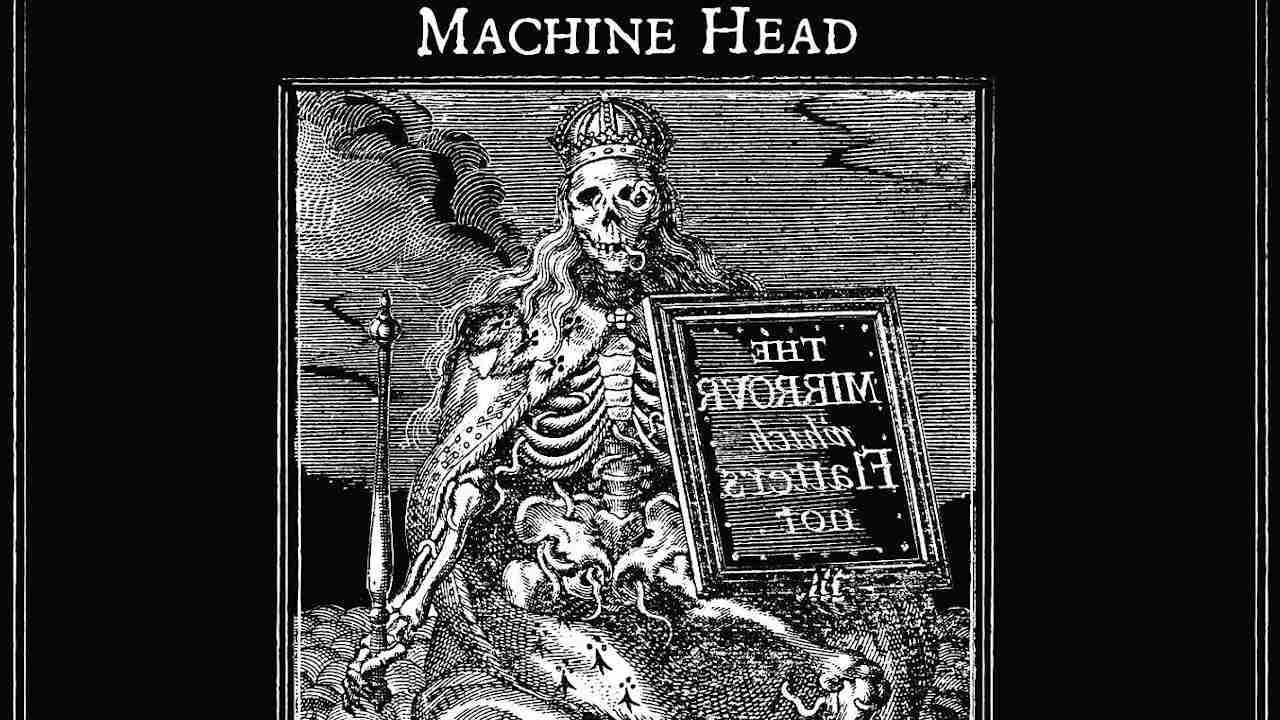We didn’t know what we were doing,” admits Robb Flynn today, a smile spreading across his face. “We just did what we believed in and somehow it connected. It was a crazy fuckin’ time!”
Every band wants to craft a classic or two during their career, but records like Machine Head’s sixth studio effort The Blackening don’t come along very often. Universally acclaimed and by far the most successful record of the Bay Area band’s now 26-year existence, it restored Machine Head to their rightful status as one of the world’s best-loved metal bands via some of the most adventurous and extravagant songs they had ever recorded, including four that gleefully pushed the 10-minute mark. The record was no surefire hit: it was a challenging and absorbing listen, but somehow it seemed to connect with metal fans in a way that few albums ever do, subsequently sending Machine Head on a daunting three-year global trek, driven by a momentum that has barely diminished in the years since.
Back in 2006, however, as they began working on the follow-up to 2003’s Through The Ashes Of Empires, Robb Flynn and his bandmates were by no means working to some grand masterplan.
“We were feeling super-confident after Through The Ashes…, for sure,” says Robb. “Writing The Blackening happened through a lot of jamming with the guys and I don’t think we ever had a particular plan in mind. There’s a myth about songwriting that you can just plan everything, but it doesn’t work like that. The first few songs we wrote weren’t big epics. That all came much later, starting with Halo, and at first I felt the songs were too long. We’d never had a 10-minute song before, and now we had four of them on one album! We tried cutting them down but it didn’t work; the songs lost all the energy and the excitement. So, we just went for it.”

Still startling 10 years on, The Blackening emerged as the rowdy and populous New Wave Of American Heavy Metal reached its commercial peak, but Machine Head’s new material bore no resemblance to Killswitch Engage or As I Lay Dying. Instead, this was the fulsome rebirth of the band’s trademark sound, with a progressive streak a mile wide, endless inspired detours and structural tricks and, most importantly, a veritable shit-ton of irresistible hooks, melodies and moments of dynamic impact. With hindsight, it’s obviously a classic metal record, but as legendary producer Colin Richardson (who was responsible for mixing The Blackening) explains, it was hard to foresee the huge success that would eventually come.
“My first thought with The Blackening was that I wasn’t sure how people would react to those 10-minute songs,” he tells us. “The truth is that they were really long songs, but they were really interesting. That excited me, so I hoped that other people would like it too, you know? But it did cross my mind, that people might not get it. It felt like a risk. But obviously I was wrong, because that record went down really well!”

Released on March 27, 2007, The Blackening received the kind of frothing reviews generally reserved for nailed-on masterpieces. Hammer gave the album full marks and few seemed to disagree – with you guys even voting it as the Album Of The Decade three years later. There was just something about this record that made it stand out from everything else at the time, not just in musical terms, but also lyrically. From the furious Aesthetics Of Hate (Robb Flynn’s vitriolic takedown of conservative blogger William Grim, who had published an odious online diatribe decrying the recently murdered Dimebag Darrell as “an ignorant, barbaric, untalented possessor of a guitar” among other idiotic slurs) and the bug-eyed tirade of Slanderous (‘I’m a redneck and a faggot/ The asshole ignoramus!’) to the anti-Christian sentiments of Halo and the pacifist plea of A Farewell To Arms, The Blackening was full of passion, rage and big ideas, as Robb confronted issues that most metal bands simply weren’t touching upon.
“We wanted to piss people off. We were all pissed off and angry about the war in Iraq at the time, and about shit that was going on in society generally, so there are a lot of fucked-up lyrics on the album, a lot of stuff that was pretty shocking,” Robb remembers. “I say this a lot, but I really believe that the job of an artist is to hold a mirror to society. Sometimes what we reflect back is beautiful and sometimes what we reflect back is ugly, but it has to be done. I showed the rest of the band the lyrics and said, ‘Look, I’m saying some fucked-up shit, are you cool?’ And they all came back and said they backed me 100%. But I knew there’d be a massive backlash, and there was.”
From the outside, it appeared that The Blackening was an instant success and that Machine Head were reaping great rewards from the outset. In truth, the first year of touring following the album’s release was far from triumphant, with the band playing to relatively small audiences and providing support to other bands, Lamb Of God among them, in the US. The backlash that Robb mentions took the form of the Disney Company banning Machine Head from their House Of Blues venue in Anaheim, California, as a result of certain lyrics on The Blackening and the band’s supposedly “undesirable” fans. Then, when Robb went public about the ban, a second show in Orlando, Florida, was pulled by the animation overlords. Typically determined, Robb forged ahead regardless.
“Obviously we got a lot of great reviews for The Blackening and people were really digging the record, but those first few tours were a long way from what happened later on,” says Robb. “We opened up for Lamb Of God in the States and Trivium were above us on the bill, and they’d been opening for us two years earlier. That’s not easy, even though we love all those guys, but in the end we realised that we had to take a step back to take two steps forward. When we did The Black Crusade in Europe, which was an amazing tour and a great bill… that’s when everything went crazy.”
- When Trivium's Matt Heafy Met Machine Head's Robb Flynn
- The 10 best Machine Head songs
- Robb Flynn slams Anselmo's 'white power' gesture
- "Water goes up your ass and you’re like, WTF?!" Robb Flynn on his, er, new hobby
Kicking off in France on November 16, 2007, The Black Crusade saw Machine Head join forces with Trivium, Arch Enemy, Dragonforce and Shadows Fall for a month of dates in Europe. Machine Head have long had a strong relationship with their European fans, and UK fans in particular, and it was obvious to Robb from the euphoric reactions they were getting on the road that The Blackening had further cemented that bond. Buoyed by that success, Machine Head then embarked on a seemingly remorseless touring schedule in support of their new album, culminating in high-profile support slots with first Slipknot and then Metallica, whose frontman James Hetfield had taken an unexpected personal interest in the band.
“Yeah, once James said he liked The Blackening, that was it!” laughs Robb. “We’re all from the Bay Area but I don’t think we were particularly on his radar before that. But he heard The Blackening, said that it kicked his ass, and then we get invited to support Metallica. It was pretty surreal.”
Thanks in part to the exposure they received from supporting Metallica during their Death Magnetic arena tour, Machine Head arrived home in March 2010 with the wind in their sails. Despite plenty of behind-the-scenes turmoil, which would later lead to the sacking of bassist Adam Duce, Robb Flynn and his comrades had weathered a very strange but exhilarating chapter in their history and had emerged victorious, if slightly broken, by the physical demands of all that hard work.
“In the end we were on the road for three years and three months,” Robb notes. “That’s fucking insane. It all went past in a blur, if I’m honest, and my only regret is that I wasn’t more in the moment at the time. But if you’d told the 16-year-old me that I’d be touring with Metallica and partying with them and travelling on their private jet, I would’ve freaked out!”

Sixty-one minutes of balls-out, red-blooded, 21st century metal that was both joyously primal and elegantly cerebral, The Blackening sounds as monstrous now as it did 10 years ago. A beacon of hope for anyone who demands more from their heavy music than formulas and lazy box-ticking, it’s an all-time classic that brought Machine Head a level of attention and acclaim that few bands of the modern era have experienced. Above all, The Blackening is an album full of glorious, life-affirming metal anthems that truly, unequivocally connected.
“Ultimately, I think the quality of the songs on The Blackening was really high,” says Colin Richardson. “In the end there are some really strong tunes on there. Machine Head really experimented on The Burning Red and Supercharger, and I think we can agree that there’s nothing necessarily wrong with a band experimenting, but I think people ultimately loved them for being a heavy metal band, and The Blackening was just the right album at the right time. When the accolades came in, I was just really pleased to be associated with it.”
“It’s weird to look back and analyse something you did 10 years ago,” laughs Robb. “It’s an album that we’re all super proud of. I guess it’s known as this super-brutal record, but for me it’s so full of melody and emotion too. I guess that’s the trick. I’d much rather be the guy that wrote The Blackening than the guy that didn’t!”

